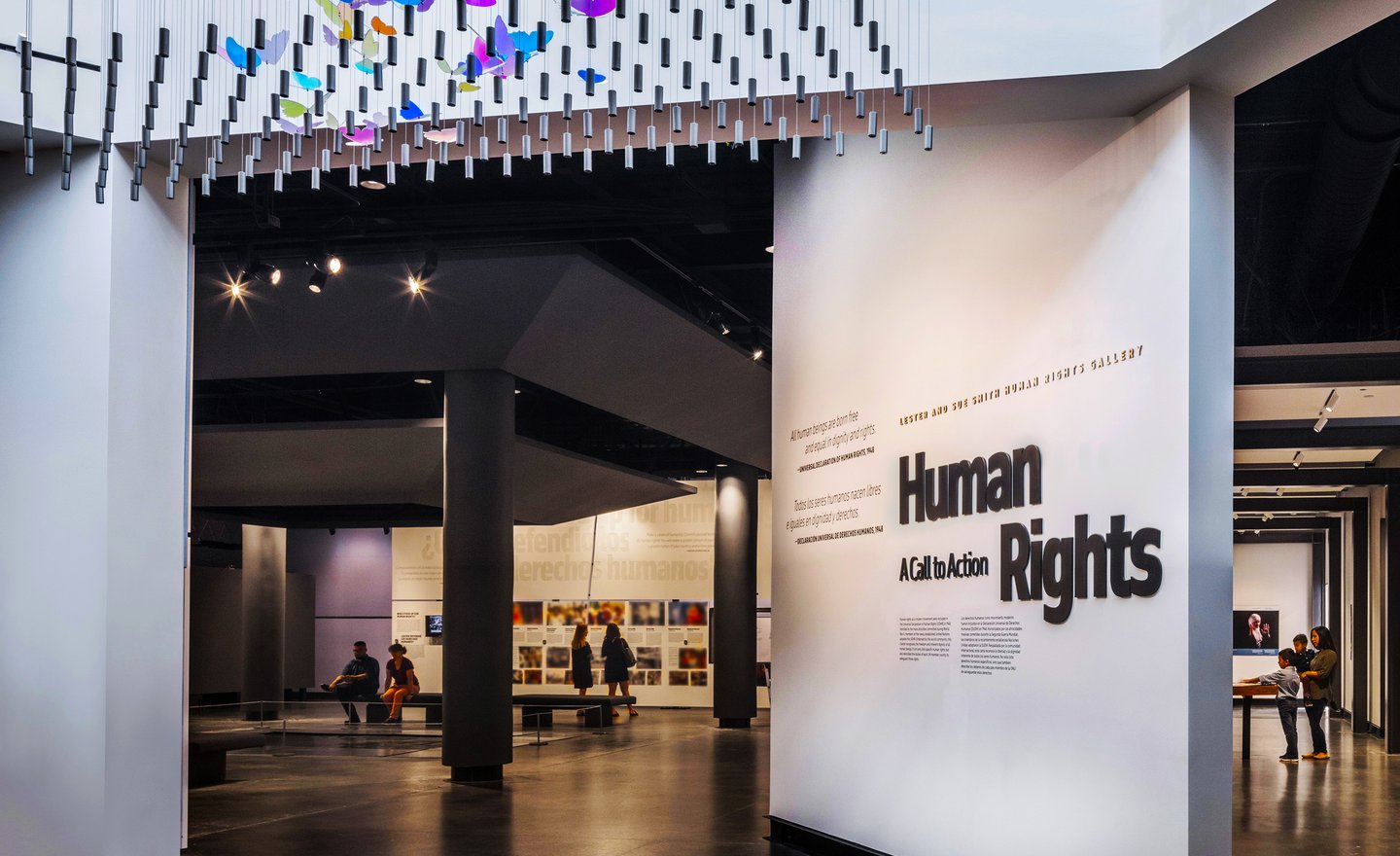
We are asked, all too often, why does Holocaust Museum Houston have a permanent Human Rights Gallery? The simple answer is that the Holocaust was a prime example of human rights violations, on a very large, very public scale, and it was the Holocaust that led to critical conversations about human rights and genocide by the United Nations.
Our Human Rights Gallery focuses on four essential questions:
- What are Human Rights?
- How do atrocities happen
- Who stood up for Human Rights?
- A Call to Action: What can you do?
The Gallery is shaped to engage our visitors in these questions in an interactive way—pictures, videos, and a call to action that asks for critical thinking about the provided content. Human Rights are basic. They should be universal. Yet, in many places, all over the world, people are having their basic human rights taken from them simply because of who they are, what they believe, the color of their skin, who they love, etc. This is unacceptable. As a Holocaust institution, we are implored to take the lessons of the Holocaust an apply them to the present.
The history of the Holocaust is what you will find in the Holocaust Gallery—the timeline, the geographic information, the names of people involved, and victim groups and the perpetrators. The lessons of the Holocaust are different. The lessons of the Holocaust require us to recognize that events like these happen when hatred runs rampant, people are apathetic, and prejudice is normalized. These ideas can be applied to many more historical instances than just the Holocaust.
The United Nations’ Declaration of Human Rights was established in 1948 as a response to the abominable treatment of people during World War II. There are 30 articles within the declaration, all providing insight into the unalienable rights of all members of “the human family.” If we recognize the importance of human rights throughout history, and today, we can work to combat the atrocities currently plaguing our world community.